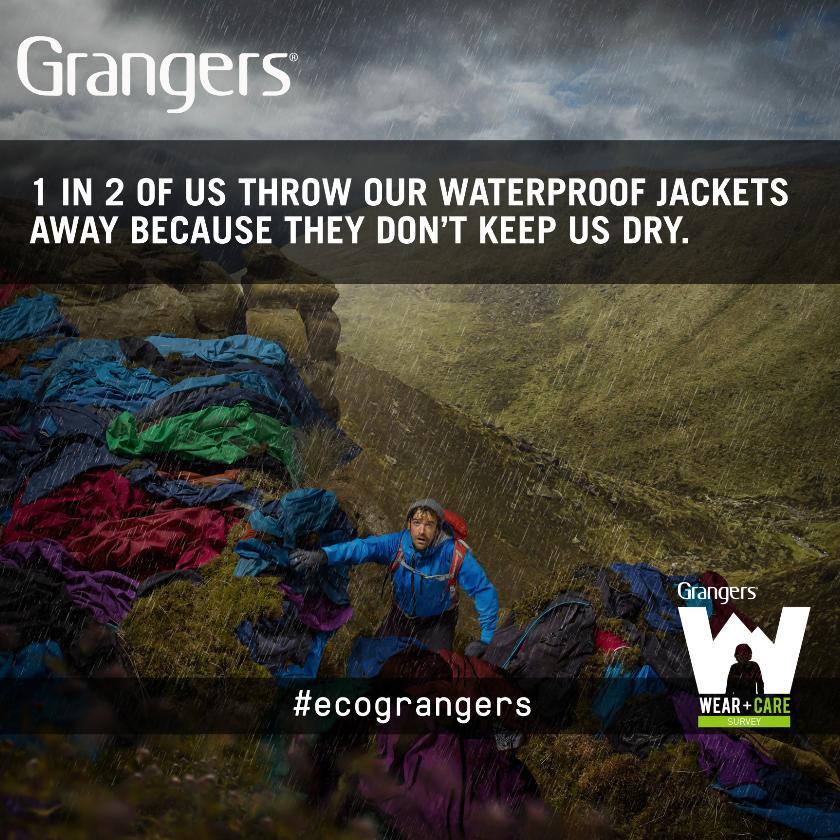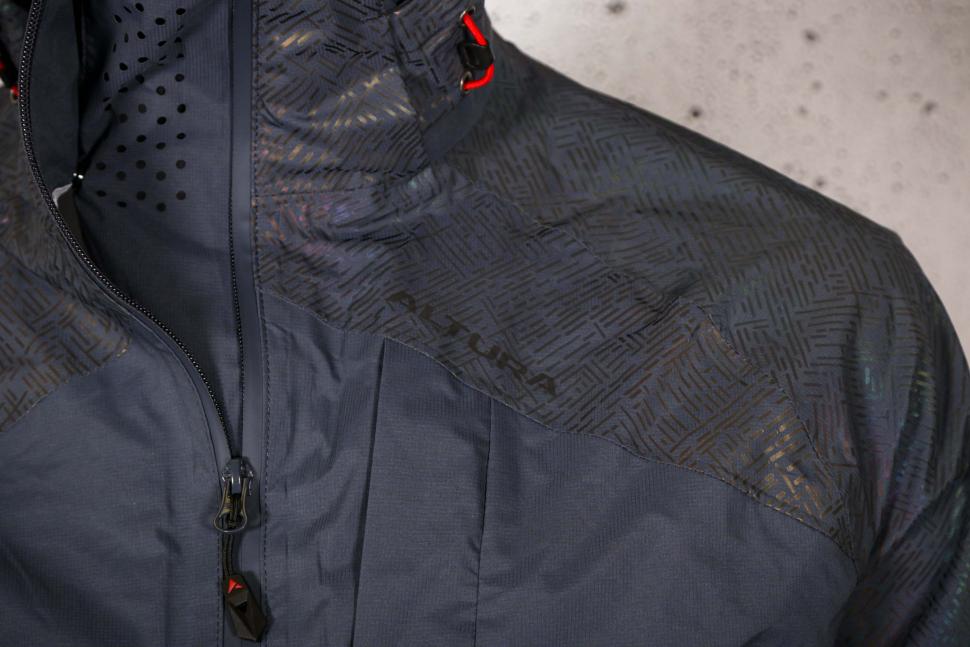- News
- Reviews
- Bikes
- Components
- Bar tape & grips
- Bottom brackets
- Brake & gear cables
- Brake & STI levers
- Brake pads & spares
- Brakes
- Cassettes & freewheels
- Chains
- Chainsets & chainrings
- Derailleurs - front
- Derailleurs - rear
- Forks
- Gear levers & shifters
- Groupsets
- Handlebars & extensions
- Headsets
- Hubs
- Inner tubes
- Pedals
- Quick releases & skewers
- Saddles
- Seatposts
- Stems
- Wheels
- Tyres
- Tubeless valves
- Accessories
- Accessories - misc
- Computer mounts
- Bags
- Bar ends
- Bike bags & cases
- Bottle cages
- Bottles
- Cameras
- Car racks
- Child seats
- Computers
- Glasses
- GPS units
- Helmets
- Lights - front
- Lights - rear
- Lights - sets
- Locks
- Mirrors
- Mudguards
- Racks
- Pumps & CO2 inflators
- Puncture kits
- Reflectives
- Smart watches
- Stands and racks
- Trailers
- Clothing
- Health, fitness and nutrition
- Tools and workshop
- Miscellaneous
- Buyers Guides
- Features
- Forum
- Recommends
- Podcast
TECH NEWS
 Grangers wear and care survey
Grangers wear and care surveyGrangers survey reveals only 66% of us reproof our waterproof jackets
Did you know you can reproof your cycling jacket to keep it effective on rides for longer? Well, according to outdoor clothing aftercare solution experts Grangers, one in two people stopped wearing a waterproof jacket because it no longer kept them dry, so that would put it as a 50/50 chance your answer would have been a 'no'.
> Find out more in our feature on how to make the most environmentally sustainable choice with your cycle clothing.
The Derbyshire-based brand, who sell a range of waterproofing, washing and care products for outdoor clothing and footwear, conducted its 2021 Wear and Care Survey over 12 months from February 2020 to February 2021. It received up to 2,300 respondents, which would have included plenty of cyclists as well as other outdoor enthusiasts.
> 37 of the best 2021 waterproof cycling jackets
Grangers’ ‘Wear + Care Survey’ is the brand’s call to action on how we can all live more sustainably given its findings. “This piece of research is a first for the outdoor industry, there is currently limited information on consumers’ wear and care habits and how sustainability and environmental responsibility influence purchasing decisions,” notes Grangers.
The average lifespan of a waterproof jacket was found to be 5.88 years in this survey, with the highest jacket life expectancy rising up to 6.05 years for those that had washed and reproofed their clothing.
Given the most expensive cycling jackets can cost well into the hundreds of pounds, it’s handy that reproofing can increase the lifespan.
The survey found that 66% of people had reproofed their jacket, while only 28% felt “somewhat confident” in reproofing a waterproof.
Grangers’ survey also revealed one in five throw away waterproofs after use instead of recycling or donating, despite 70% responding that sustainability was ‘very important’ or ‘extremely important’ when buying outdoor clothing and equipment.
While there is a lot clothing brands can be doing to reduce their impact on the environment - by choosing recycled fabrics, reducing waste, producing durable products etc - there’s a difference we can all make. Keeping the product in use for longer by repairing it (or sending it in for repair) and reproofing when it has lost its water repellency can make a difference, as well as washing only when needed (especially if the product is odour-resistance and requires less washing) and only buying products you really need.
Grangers’ survey found that 83% of respondents owned more than one jacket, and 44% wore their waterproof once a week over the past 12 months.
Grangers itself has developed the world's first water-based waterproofing solution as part of its sustainability initiatives - you can find out more on the Grangers website.
Anna has been hooked on bikes ever since her youthful beginnings at Hillingdon Cycle Circuit. As an avid road and track racer, she reached the heady heights of a ProCyclingStats profile before leaving for university. Having now completed an MA in Multimedia Journalism, she’s hoping to add some (more successful) results. Although her greatest wish is for the broader acceptance of wearing funky cycling socks over the top of leg warmers.
Latest Comments
- ErnieC 4 hours 8 min ago
or Team Bahrain ... selective outrage.
- newbankgyratory 5 hours 10 min ago
This website offers suitable data: https://www.automobiledimension.com/large-suv-4x4-cars.php
- newbankgyratory 5 hours 43 min ago
Perhaps park the goods in a US Customs Bonded warehouse and then import them out of there when the tariff nonsense settles down?...
- Dnnnnnn 3 hours 39 min ago
Good to see a road.cc review of what must be one of the UK's best-selling 'proper' road bikes....
- PRSboy 6 hours 38 min ago
Another thing ruined by the Americans
- Miller 7 hours 57 min ago
Nice to see WvA featuring in the finale.
- Miller 8 hours 9 sec ago
I have known more than one elder statesman of the club die of a heart failure while out on a ride. Sometimes I feel that's about to happen to me,...
- Pub bike 8 hours 17 min ago
Via the "wireless active steering system".
- Hirsute 8 hours 41 min ago
137m is the farthest I have observed when quickly looking at the Garmin unit....
- pockstone 8 hours 58 min ago
Yours worked wonders, but if you insist, I'll hop to it...why the need for extra police? Did the fire brigade bottle it?


Add new comment
15 comments
These DIY DWR treatments as never as good as the factory applied treatments, although the environmentally friendly DWR treatments used by some companies are pretty crap compared to the good old PFC treatments of old which although not bunny hugging nice only need to be used 1 fifth as often and therefore could be considered more envitonmentally friendly.
There aren't many if any fully waterproof jackets that are breathable enough to keep you dry when exercising heavily, waterproofs IMO are only useful to keep you warm or when you are cycling as transport at a lower intensity and need to get somewhere relatively dry. In which case all my (and the GFs) waterpoofs get worn out and delaminate at contact points, in which case no amount of grangers or nikwax proofing wil do anything to help.
I'm fine with washing and re-proofing proper waterproofs; it's "water repellent" soft fabrics that I can't seem to make last (or at least I can't get the water resistance to last, nor does it seem to be revived with wash-in reproofers from Grangers, Nixwak or the like).
Admittedly I dont go hiking in the rain, and wouldnt ever start a ride in heavy rain, though I've ridden lots of times in the rain,I'm not a total fair weather only cyclist.
But I've never quite seen the point of waterproof jackets that need reproofing all the time, or arent breathable, I just kind of accept if it rains, I'll get wet.
Sometimes it's the difference between being warm and wet, or cold and wet.
These life-expectancy stats make me feel a lot better about wanting to replace my 20 year old GoreTex walking coat. Reproofed it a couple of times, but the beading is never the same as new, and the face fabric now just gets soaked.
and the dwr is only a bonus coating on good technical jackets anyway.
tried reproofing a jacket once and it seemingly made no difference, smelt awful and was a mess.
That's not really true, It's true that the membrane alone will keep you dry, but without the water repelling coating the water won't bead, so you'll get a layer of water over the outside of the jacket, and that won't be breathable. So to keep breathability - not, as you rightly say, waterproofing - you do need to reproof your jacket.
What did you use? I've not noticed any smell from jacket treated with Nikwax re-proofing. I find it does make a noticeable difference, but it's not as good as new.
Spot on. Which leads to the observation that the vast majority of so-called (and so expensive) breathable waterproofs are, after only a few uses, waterproof when it's wet and breathable when it's dry, but not both at the same time.
The proof of the lie is this - if the DWR actually was Durable, then why would they need the fancy membrane? So long as it is doing its thing and repelling water then the water just beads off and the membrane is redundant.
But of course they know that won't last, the D is a deceit, and soon enough the membrane will be holding the water out, at which point it won't be breathable any more.
Shakedry seems to be the only exception, largely because the exposed membrane is durably water repellent of itself.
These are the people who ride with people who won't use mudgaurds in the winter.
Except that you don't have to reproof ShakeDry and similar jackets. Just wash them: https://www.gore-tex.com/support/care/outerwear
Six years doesn't seem particularly good for "highest jacket life expectancy" including reproofing.
And if you do reproof it, lifespan increased by a whole 0.17 years (so, another 62 days).
Just had a look at the full survey results. They seem to have been asking how long people subjectively expect their garments to last, rather than some 'objective' measure of how long they could last. Still shocked that people think a waterproof coat only lasts 6 years though.
Oh, OK - that makes more sense.
Isn't the answer to that "Well, just the season, darling, obviously"?